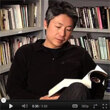The Book of Salt: A Novel
Description
"[He] came to us through an advertisement that I had in desperation put in the newspaper." It began captivatingly for those days: "Two American ladies wish…" It was these lines in The Alice B. Toklas Cook Book that inspired The Book of Salt.
In Paris, 1934, B+¼nh has accompanied his employers, Gertrude Stein and Alice B. Toklas, to the train station for their departure to America. His own destination is unclear: will he go with "the Steins," stay in France, or return to his native Vietnam?
B+¼nh has fled his homeland in disgrace, leaving behind his malevolent charlatan of a father and his self-sacrificing mother. For five years, he has been the live-in cook at the famous apartment at 27 rue de Fleurus. Before B+¼nh's decision is revealed, his mesmerizing narrative catapults us back to his youth in French-colonized Vietnam, his years as a galley hand at sea, and his days turning out fragrant repasts for the doyennes of the lost generation.
More Details
9781624602603
Also in this Series
Published Reviews
Booklist Review
Drawing inspiration from a fleeting reference in the Alice B. Toklas Cook Book (1954) to two "Indochinese" men who at one point cooked for Toklas and Gertrude Stein, Truong has concocted a delectable fictional memoir. Faced with the decision about whether to accompany Stein and Toklas to America, return to Vietnam, or remain in France, Binh, the Vietnamese cook who has labored for the unconventional ladies he has dubbed "The Steins," for about five years, reflects back on his troubled life and times. Interspersing his own story with that of his illustrious employers, Binh meanders back and forth through time, recounting his youthful misadventures in Vietnam, his time toiling as a galley hand aboard a sailing vessel, and his years spent cooking for the Steins and indulging in the joys and perils of the seamier side of Parisian nightlife. Using salt as a metaphor for "food, sweat, tears and the sea," and interweaving the narrative with suggestions of ingredients, recipes, and exotic dishes, Truong provides a savory debut novel of unexpected depth and emotion. --Margaret Flanagan
Publisher's Weekly Review
A mesmerizing narrative voice, an insider's view of a fabled literary household and the slow revelation of heartbreaking secrets contribute to the visceral impact of this first novel. From a few lines in The Alice B. Toklas Cook Book, Truong reimagines the Vietnamese cook who was hired by the famous residents at 27 rue de Fleurus. Bonh, as he calls himself, is an exile from his homeland, where he was denounced because of a homosexual relationship and banished by his brutal father. After three years at sea, Bonh ends up in Paris, where he answers Toklas's ad ("Two American ladies wish...") and enters the household of Gertrude Stein. The story begins in 1934 when the women he calls "my Mesdames" are about to tour America, and Bnh fears he'll be cast adrift once again. Flashbacks reveal his loneliness and guilt, his doomed love affairs (he enjoys a brief tryst with Ho Chi Minh, whom he knows only as "the man on the bridge") and his sadness at having abandoned his mother and his native land. The tone throughout is poignant, lightened by Bnh's subversive wit; for all his bitterness and resentment, he is a captivating narrator, as adept at describing Stein's literary salon as the contents of Toklas's kitchen. If Truong sometimes stretches the range of Bonh's understanding and powers of observation, interpreting even the thoughts of Stein herself, the narrative rings with emotional authenticity. Truong's supple prose is permeated with sensual detail, reminiscent of A Debt to Pleasure in its evocation of the erotic possibilities of food. But it is her intuitive understanding of the condition of exile-"the pure, sea salt sadness of the outcast"-that infuses her novel with richness and beauty. Author tour; rights sold in U.K. and France. (Apr. 7) (c) Copyright PWxyz, LLC. All rights reserved
Library Journal Review
Set in Paris during the late 1920s and early 1930s, this uniquely told tale by debut novelist Truong features Binh, the fictionalized Vietnamese cook to literary figures Gertrude Stein and Alice B. Toklas, who narrates the tale of his life working for "my Mesdames." Early in the novel, readers are whisked inside 27 rue de Fleurus, the real-life residence of the two women, as Binh judiciously describes the daily nuances of his life as well as his own equally intriguing biography. Truong's novel portrays varying dimensions of love as readers observe the relationships between Stein and Toklas, Binh and his lover Sweet Sunday Man, and the Old Man and Binh's mother. From a culinary perspective, this work is a sensual treat similar to Laura Esquivel's Like Water for Chocolate and Joanne Harris's Chocolat. And like novelist Gail Tsukiyama, Truong is able to create Asian characters and blend them with historical elements to create a work that will appeal to a broad audience. Highly recommended for public and academic libraries with large fiction collections and those serving Vietnamese American populations.-Shirley N. Quan, Orange Cty. P.L., Santa Ana, CA (c) Copyright 2010. Library Journals LLC, a wholly owned subsidiary of Media Source, Inc. No redistribution permitted.
Kirkus Book Review
In a dazzling if sometimes daunting debut, Gertrude Stein and Alice B. Toklas's Vietnamese cook tells his story--and theirs. By 1934, Binh (it may or may not be his real name) has cooked for Stein and Toklas for five years. As he and his "Mesdames" travel by rail to Le Havre, where the women will depart for America, we learn his history in bits and pieces, often through meandering riffs that may challenge readers' patience. Binh is the fourth son of an authoritarian Vietnamese Catholic (who may or may not be his biological father). His oldest brother, a sous-chef, finds work for Binh in the kitchen of the French Governor General of Vietnam, but Binh's homosexual affair with the chef is revealed, and he's fired. Binh escapes disgrace by going as a cook's assistant aboard a freighter bound for Europe, then works in a number of French kitchens before finding a home with Stein and Toklas. He describes the famous couple from the intimate perspective of hired help verging on family. While he admires the woman he calls GertrudeStein (sic) as a major energy force, his deeper loyalty goes to Toklas, who shares his passion for the sensuality of preparing food--the novel is in fact largely a meditation on the senses and sensuality, and the salt of the title has different sources (table, sea, tears, sweat) that create different sensations and different resonances. Truong caresses each image and each shifting sensation, forming whole scenes around a taste, color, or touch, language being her other second theme. Binh himself writes in Vietnamese, speaks a little French and less English, but comments on the meaning of words as they play against each other in the three languages. Far less important is the plot involving his affair with a mixed-race American for whom he steals one of Stein's notebooks. A tour de force. Truong should take literate America by storm. Copyright ©Kirkus Reviews, used with permission.
Booklist Reviews
Drawing inspiration from a fleeting reference in the Alice B. Toklas Cook Book (1954) to two "Indochinese" men who at one point cooked for Toklas and Gertrude Stein, Truong has concocted a delectable fictional memoir. Faced with the decision about whether to accompany Stein and Toklas to America, return to Vietnam, or remain in France, Binh, the Vietnamese cook who has labored for the unconventional ladies he has dubbed "The Steins," for about five years, reflects back on his troubled life and times. Interspersing his own story with that of his illustrious employers, Binh meanders back and forth through time, recounting his youthful misadventures in Vietnam, his time toiling as a galley hand aboard a sailing vessel, and his years spent cooking for the Steins and indulging in the joys and perils of the seamier side of Parisian nightlife. Using salt as a metaphor for "food, sweat, tears and the sea," and interweaving the narrative with suggestions of ingredients, recipes, and exotic dishes, Truong provides a savory debut novel of unexpected depth and emotion. ((Reviewed March 1, 2003)) Copyright 2003 Booklist Reviews
Library Journal Reviews
Set in Paris during the late 1920s and early 1930s, this uniquely told tale by debut novelist Truong features Binh, the fictionalized Vietnamese cook to literary figures Gertrude Stein and Alice B. Toklas, who narrates the tale of his life working for "my Mesdames." Early in the novel, readers are whisked inside 27 rue de Fleurus, the real-life residence of the two women, as Binh judiciously describes the daily nuances of his life as well as his own equally intriguing biography. Truong's novel portrays varying dimensions of love as readers observe the relationships between Stein and Toklas, Binh and his lover Sweet Sunday Man, and the Old Man and Binh's mother. From a culinary perspective, this work is a sensual treat similar to Laura Esquivel's Like Water for Chocolate and Joanne Harris's Chocolat. And like novelist Gail Tsukiyama, Truong is able to create Asian characters and blend them with historical elements to create a work that will appeal to a broad audience. Highly recommended for public and academic libraries with large fiction collections and those serving Vietnamese American populations.-Shirley N. Quan, Orange Cty. P.L., Santa Ana, CA Copyright 2003 Reed Business Information.
Publishers Weekly Reviews
A mesmerizing narrative voice, an insider's view of a fabled literary household and the slow revelation of heartbreaking secrets contribute to the visceral impact of this first novel. From a few lines in The Alice B. Toklas Cook Book, Truong reimagines the Vietnamese cook who was hired by the famous residents at 27 rue de Fleurus. Bonh, as he calls himself, is an exile from his homeland, where he was denounced because of a homosexual relationship and banished by his brutal father. After three years at sea, Bonh ends up in Paris, where he answers Toklas's ad ("Two American ladies wish...") and enters the household of Gertrude Stein. The story begins in 1934 when the women he calls "my Mesdames" are about to tour America, and Bình fears he'll be cast adrift once again. Flashbacks reveal his loneliness and guilt, his doomed love affairs (he enjoys a brief tryst with Ho Chi Minh, whom he knows only as "the man on the bridge") and his sadness at having abandoned his mother and his native land. The tone throughout is poignant, lightened by Bình's subversive wit; for all his bitterness and resentment, he is a captivating narrator, as adept at describing Stein's literary salon as the contents of Toklas's kitchen. If Truong sometimes stretches the range of Bonh's understanding and powers of observation, interpreting even the thoughts of Stein herself, the narrative rings with emotional authenticity. Truong's supple prose is permeated with sensual detail, reminiscent of A Debt to Pleasure in its evocation of the erotic possibilities of food. But it is her intuitive understanding of the condition of exile-"the pure, sea salt sadness of the outcast"-that infuses her novel with richness and beauty. Author tour; rights sold in U.K. and France. (Apr. 7) Copyright 2003 Cahners Business Information.




































